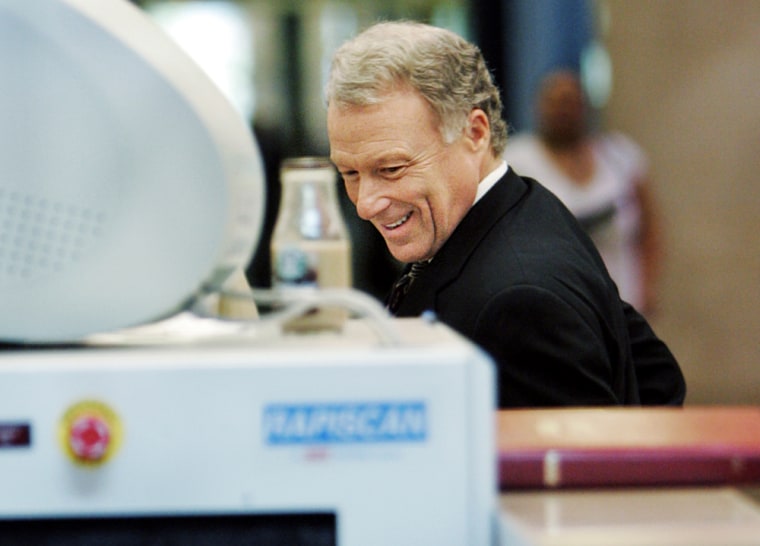The special prosecutor in the CIA leak investigation said Monday he doesn’t expect the White House to attempt to block Vice President Dick Cheney’s former top aide from using classified intelligence material in his defense to perjury charges.
Special Counsel Patrick Fitzgerald told U.S. District Judge Reggie B. Walton that the White House has designated certain documents that it is concerned about being made public during a trial.
If those documents are among those that I. Lewis “Scooter” Libby wants to prepare his defense, Fitzgerald said, he and Libby’s lawyers will work out solutions with the judge in secret under a law designed to deal with defendants’ access to classified government information.
Libby, 55, was charged last October with lying to the FBI and a federal grand jury about how he learned and when he subsequently told three reporters about CIA officer Valerie Plame. He faces five counts of perjury, false statements and obstruction of justice.
Under the Classified Information Procedures Act, Walton will broker compromises between the government and the defense as to what information can be used at trial and in what form. Much of what Libby wants likely will be provided to the jury via summaries of the classified material.
So far, the government has turned over an initial batch of about 55 pages to Libby’s defense team, and another group of documents is to be delivered Tuesday, defense attorney John DeWitt Cline said.
‘Areas of disagreement’ expected
“It’s clear there are going to be some areas of disagreement,” Cline said, adding that he thought the lawyers could narrow the differences with the judge’s help and avoid a fight with the White House.
Walton set an Aug. 16 hearing to resolve the differences. The hearing will be held behind closed doors.
Fitzgerald also said he doesn’t anticipate any fights with the White House over witnesses he plans to call at Libby’s trial in January. Fitzgerald has indicated that he might call witnesses ranging from Cheney to former White House Press Secretary Ari Fleischer and former State Department official Marc Grossman.
“The White House is aware of the witnesses we intend to call ... and the subject areas,” the prosecutor told Walton. “This is not a crisis that is looming. I want to assure you of that.”
In March, Walton ordered the CIA to turn over material from highly classified intelligence briefings — known as the President’s Daily Brief — to Libby’s defense team.
By doing so, Walton rejected CIA warnings that the nation’s security would be imperiled and set the stage for a showdown with the White House over executive privilege.
Judge calls for ‘table of contents’
The judge ordered the CIA to provide what amounts to a “table of contents” of what Libby and Cheney received six days a week. The briefings contain sensitive details about intelligence gathered on threats against the United States.
The defense attorneys originally wanted nearly a year of the intelligence briefings to show that Libby had more important matters on his mind and could have easily forgotten or remembered incorrectly “snippets” of conversations he had about CIA operative Valerie Plame.
Plame’s status as a CIA officer was published in July 2003 by columnist Robert Novak after her husband, former U.S. Ambassador Joseph Wilson, accused the administration of twisting intelligence about Iraq’s efforts to buy uranium “yellowcake” in Niger. The year before, the CIA had sent Wilson to Niger to determine the accuracy of the uranium reports, and he had discounted the allegations.
Cline also told Walton the defense has not yet decided whether it will call an expert on memory to testify at trial.
A key to Libby’s defense is whether a jury should believe what NBC’s Tim Russert, Time magazines’s Matthew Cooper and former New York Times reporter Judith Miller remember about their conversations with Libby — or what Libby recalls telling them.
